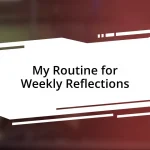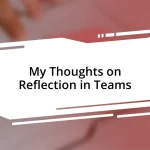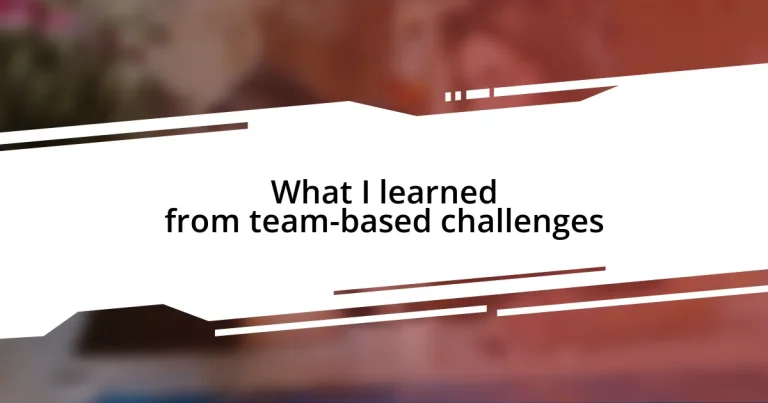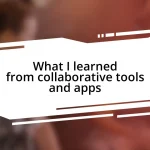Key takeaways:
- Understanding diverse personalities and communication styles within a team is crucial for success and fosters personal growth.
- Establishing clear roles and responsibilities enhances workflow and ensures accountability among team members.
- Embracing adaptability and effective communication, particularly active listening, are essential skills developed through team challenges.
- Creating an open environment for feedback and leveraging technology significantly boosts collaboration and innovation.
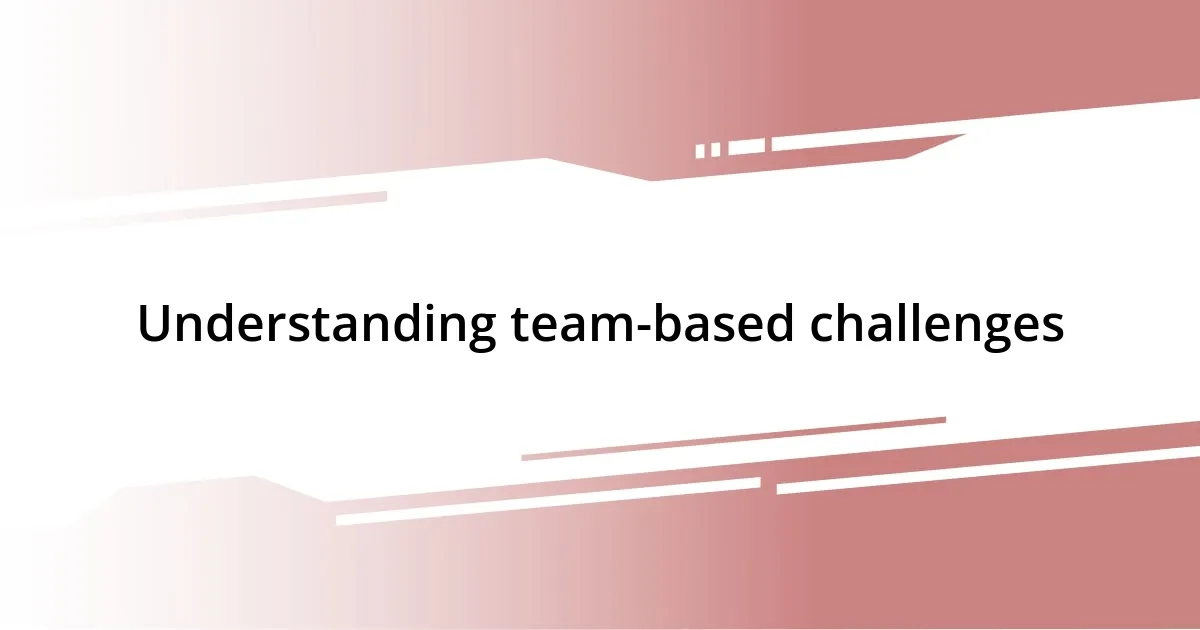
Understanding team-based challenges
Team-based challenges can often feel overwhelming, especially when diverse personalities and skill sets collide. I remember one project where we had a mix of introverts and extroverts in the group. It was fascinating to see how each perspective brought unique strengths to the table, yet the tension between different communication styles created real friction. Have you ever found yourself in a situation where a wrong word made all the difference in your team’s dynamic?
I’ve learned that understanding these dynamics is essential for success. During a particularly intense brainstorming session, we struggled to find common ground until we took a step back and acknowledged everyone’s viewpoints. This moment highlighted that sometimes, listening becomes more crucial than speaking. It made me wonder—how often do we assume our ideas are the best without truly considering others?
In essence, team-based challenges push us to confront not just the project at hand, but also our own biases and assumptions. I’ve seen how these experiences can foster personal growth, as we learn to navigate conflicts and find collaborative solutions. Each challenge teaches us something new, reminding us that growth often comes from discomfort. Isn’t that a profound insight?
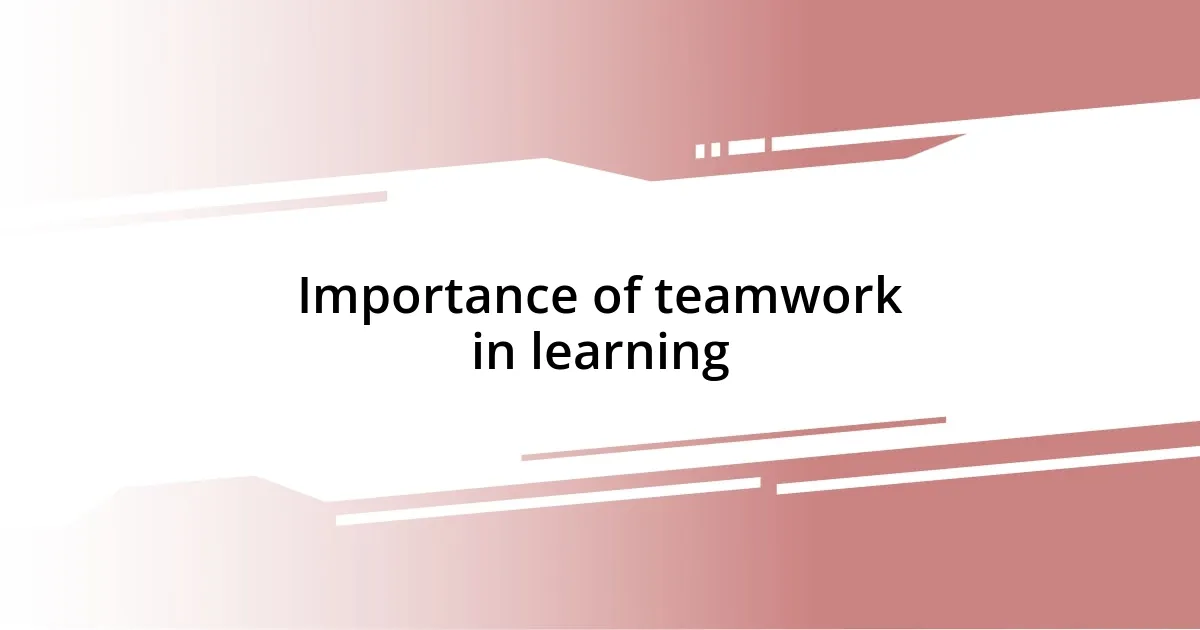
Importance of teamwork in learning
Teamwork is vital in any learning experience, as it allows us to leverage collective strengths. I remember a time during a group project where my role was to analyze data. At first, I felt overwhelmed with the complexity, but my teammates stepped in, sharing their insights and different perspectives. This not only helped me grasp the concepts better but also made me realize that we learn not just through individuals but through our collective intelligence.
- Teamwork cultivates problem-solving skills by presenting diverse viewpoints.
- Working together can help us develop essential communication skills.
- Collaborating fosters a sense of shared responsibility, making everyone accountable.
- I’ve seen firsthand how teamwork can boost morale and inspire creativity, especially when everyone feels valued.
- It encourages adaptability, helping us learn to adjust our approaches based on group dynamics.
Each of these facets illustrates how much richer our learning experiences can become when we embrace collaboration instead of working in isolation.
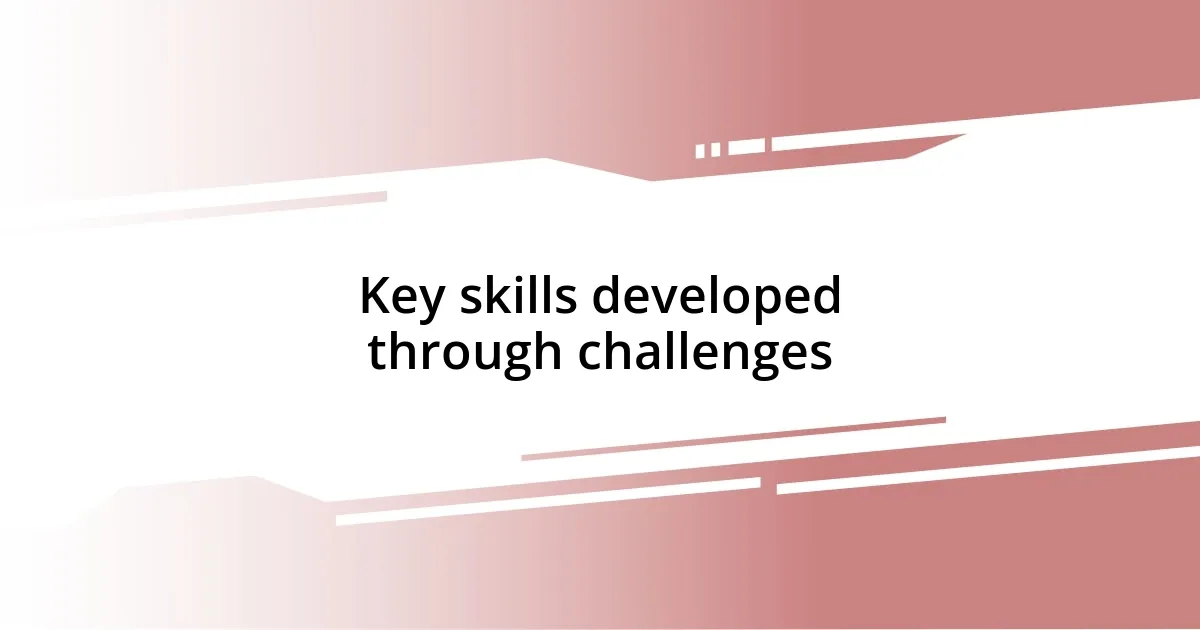
Key skills developed through challenges
When participating in team-based challenges, I discovered that adaptability is a key skill that continuously evolves. I recall a time when our project deadline loomed closer than expected, and our initial plans fell apart. Instead of panicking, we collectively brainstormed and adjusted our strategy on the fly. This taught me the value of remaining flexible and open to change, especially in high-pressure situations. Have you ever had to pivot your approach at the last minute? It can be daunting, but those moments often lead to unexpected breakthroughs.
Collaboration also sharpened my conflict resolution skills. In one particularly difficult project, two team members disagreed fiercely about the direction we should take. Rather than letting the situation spiral, I took the initiative to facilitate a conversation where everyone could express their views. It was fascinating to see how creating a safe space for discussion not only diffused tension but also led to a solution that incorporated elements from both perspectives. Isn’t it interesting how sometimes, the solution lies in the problems themselves?
Lastly, participating in these challenges reinforced the importance of communication skills. I learned that clarity and active listening can significantly impact how effectively a team functions. During one brainstorming session, I realized that my tendency to talk over others was hindering our progress. By consciously making an effort to listen more and speak less, I noticed an improvement in team synergy, which ultimately led to better results. We’ve all been in situations where miscommunication led to misunderstandings, right? It’s a reminder that how we convey our thoughts can make a world of difference.
| Key Skill | Description |
|---|---|
| Adaptability | The ability to adjust strategies quickly in response to unforeseen circumstances. |
| Conflict Resolution | Skills to resolve disagreements constructively and foster collaboration. |
| Communication | Clarity and active listening skills that enhance team dynamics. |
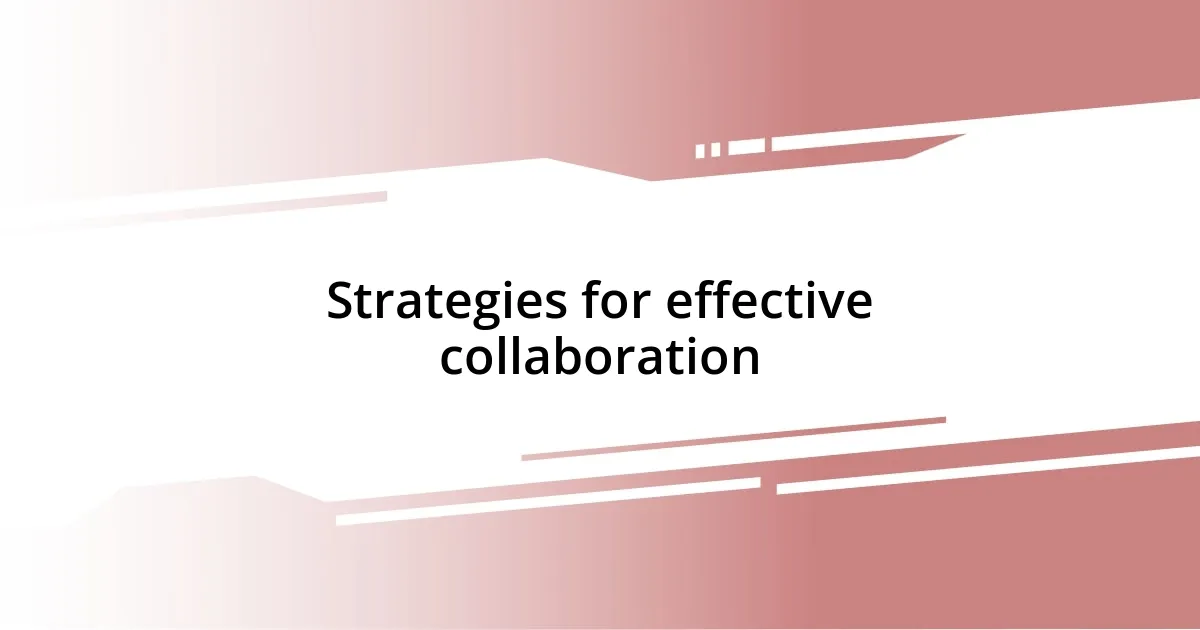
Strategies for effective collaboration
One effective strategy for collaboration is establishing clear roles and responsibilities right from the get-go. I remember organizing a team for a community project, and it became evident how much smoother our workflow was once everyone understood their tasks. It felt like this weight lifted off my shoulders when I didn’t have to worry about overlapping efforts. Have you ever experienced that enlightening moment when everyone’s clear about their contributions? It’s liberating!
Another key aspect is fostering an open environment for feedback. During a particularly challenging semester, our team held weekly check-ins where we could express our thoughts and concerns. I initially hesitated to share my ideas, fearing they might be dismissed. However, once I saw my teammates being candid, I realized the value of vulnerability in a group setting. Creating a safe space for dialogue not only strengthened our connection but also led to innovative solutions.
Lastly, leveraging technology can greatly enhance collaboration. Using tools like shared documents or communication platforms was a game-changer for us. I vividly recall the efficiency it brought when we collaborated on a presentation. Instead of endless email threads, we could all edit in real time, sparking discussions within the document. Isn’t it fascinating how technology can bridge gaps and keep the creative flow going? Embracing these tools made teamwork not just productive, but also enjoyable!
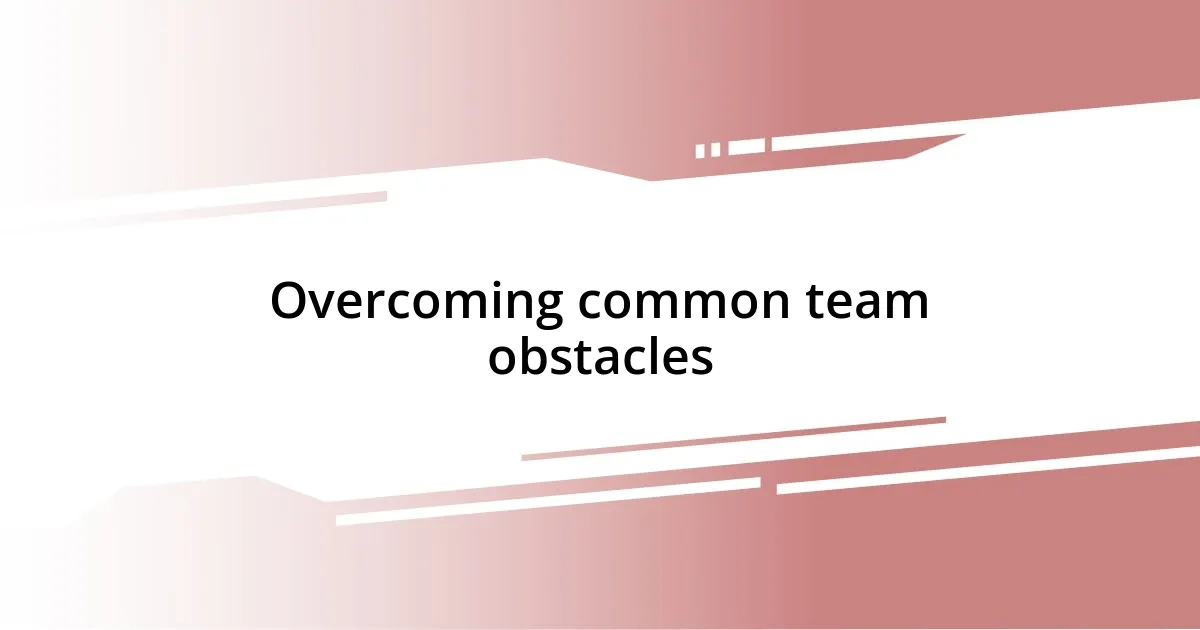
Overcoming common team obstacles
When it comes to overcoming common obstacles in a team, one of the biggest hurdles is managing different personalities. During a project last year, I found myself working with someone whose approach was vastly different from mine. It was challenging at first, as our communication styles clashed. However, instead of letting frustration take over, I took the time to understand their perspective. This experience taught me that embracing diversity in thought can lead to richer outcomes—hasn’t everyone felt that spark when a teammate offers a fresh take on an old idea?
Another common obstacle I’ve faced is maintaining momentum when motivation wanes. I remember a time when we hit a slump midway through a project. To revive our energy, I suggested a celebratory meeting, where we reflected on our achievements so far. Recalling our successes reignited our passion and reminded us of the shared goal. What about you? Have you ever noticed how reflecting on past wins can uplift a team’s spirit and drive them forward?
Lastly, decision-making can often slow down progress. I distinctly recall a scenario where we were stuck debating the best course of action for days on end. Sensing the growing frustration among us, I proposed a simple but effective solution: voting! It was remarkable how quickly the air cleared once everyone had a say. This experience highlighted for me the importance of streamlining decision-making processes to keep the momentum going. Could it be that sometimes, a simple method is all we need to break through a stalemate?







